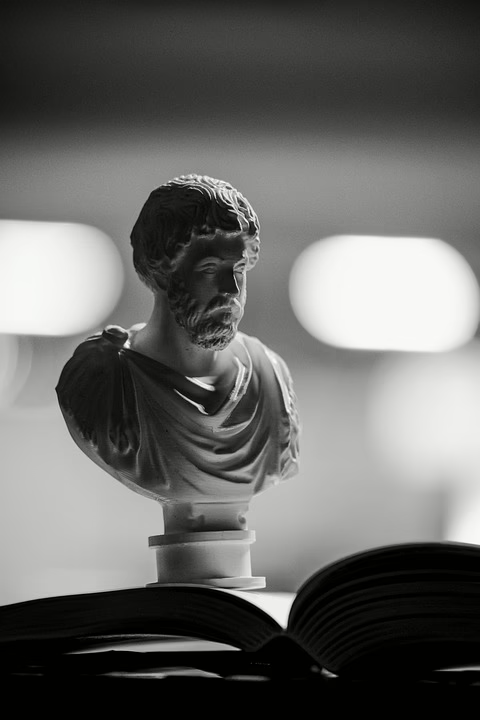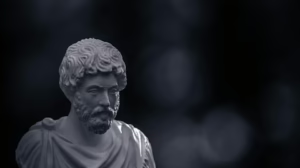Philosophy Beyond the Classroom: Transformative Reads for Everyday Life
Philosophy often conjures images of university lecture halls or dense tomes, filled with obscure terminology and esoteric arguments. However, philosophy is not confined to academia; it is profoundly applicable to our daily lives and decisions. While traditional academic philosophy undoubtedly holds value, transformative philosophical insights can be found in modern literature that resonates with our everyday experiences. This article explores a selection of transformative philosophical reads that encourage critical thinking, ethical reflection, and personal growth, demonstrating how philosophy can empower us beyond the classroom.
1. The Call to Read Philosophy
Philosophy is the pursuit of wisdom. It encourages us to question our beliefs, examine our values, and engage deeply with the world around us. The challenge is assimilating these philosophical inquiries into our everyday lives. This integration is precisely why reading contemporary philosophical works can be so enriching.
1.1 Why Read Philosophy?
Engaging with philosophical texts can lead to a myriad of benefits:
- Critical Thinking: Enhances our ability to analyze and assess arguments.
- Empathy: Broadens our understanding of diverse perspectives and human experiences.
- Self-Reflection: Encourages introspection on personal beliefs and motivations.
- Decision Making: Aids in the ethical evaluation of choices we face in life.
These benefits are especially pronounced when exploring works that bridge the gap between theory and practical application.
2. Selected Transformative Reads
2.1 “The Art of Happiness” by the Dalai Lama and Howard Cutler
In “The Art of Happiness,” the Dalai Lama engages in a dialogue about the nature of happiness and the human condition. This work is grounded in Buddhist philosophy yet presented in an accessible way for modern readers.
Key Takeaways
- Interconnectedness: The idea that our happiness is linked to the happiness of others emphasizes the importance of compassion and altruism in our lives.
- Mindfulness: Encourages a present-centered approach to life, promoting mental well-being.
This book serves as a gentle reminder that philosophy is not always about abstract reasoning but can instead focus on practical wisdom and emotional well-being.
2.2 “Man’s Search for Meaning” by Viktor Frankl
Viktor Frankl’s harrowing yet inspiring memoir details his experiences in Nazi concentration camps and introduces his psychological philosophy known as logotherapy.
Key Takeaways
- Meaning Over Pleasure: Frankl posits that meaning is essential for a fulfilling life, often more so than the pursuit of pleasure.
- Responsibility: Emphasizes personal responsibility in finding meaning, even in the most horrific circumstances.
Frankl’s insights compel readers to interrogate their values and seek deeper meaning in their lives, transforming how we face adversity.
2.3 “The Tao of Pooh” by Benjamin Hoff
This whimsical exploration of Taoism uses the characters from A.A. Milne’s “Winnie the Pooh” to illustrate fundamental Taoist principles.
Key Takeaways
- Simplicity: A message that complexity often hinders our understanding of life; embracing simplicity can lead to a more balanced approach.
- Harmony with Nature: Encourages a connection to the natural world and an appreciation for its rhythms.
Hoff’s book demonstrates how philosophical ideas can be communicated through storytelling and humor, making profound insights accessible to a wide audience.
2.4 “The Subtle Art of Not Giving a F*ck” by Mark Manson
Mark Manson’s candid approach to self-help integrates philosophical ideas with modern-day challenges, calling for a reevaluation of what truly matters.
Key Takeaways
- Value of Limits: Manson suggests that our struggles give life meaning; the act of choosing what to care about shapes our identity.
- Accepting Uncertainty: By embracing discomfort and uncertainty, we can lead more authentic lives.
This book challenges the prevailing notion of relentless positivity, advocating for a realistic and grounding perspective on life’s challenges.
2.5 “The Power of Now” by Eckhart Tolle
Eckhart Tolle’s influential work focuses on the importance of living in the present moment, urging readers to transcend their ego-driven thoughts.
Key Takeaways
- Ego and Identity: Questions the depth of our identities, promoting detachment from material concerns and societal expectations.
- Presence: Emphasizes mindfulness as a pathway to deeper awareness and peace.
Tolle’s work can be transformative, prompting readers to reconsider their relationship with time and existence.
2.6 “Daring Greatly” by Brené Brown
Brené Brown’s research on vulnerability explores the power of being emotionally open and its role in fostering connection and resilience.
Key Takeaways
- Vulnerability as Strength: Challenges the misconception that vulnerability equates to weakness.
- Connection: Illustrates the importance of authentic connections in personal growth and relationship building.
Brown’s approach underscores the ethical dimensions of human relationships and the need for courage in vulnerability.
3. Integrating Philosophy into Daily Life
Reading these transformative works can lead to practical applications of philosophy in everyday life. Here are several ways to integrate philosophical insights into daily practices:
3.1 Reflective Journaling
Engaging in reflective journaling can help distill the wisdom gleaned from philosophical texts. Write down key takeaways, questions, and personal insights. This practice encourages deeper contemplation and retention of concepts.
3.2 Thoughtful Conversations
Share your insights with friends or family. Discussing philosophical ideas can lead to new perspectives, foster critical thinking, and enhance personal relationships.
3.3 Daily Mindfulness Practices
Implement mindfulness techniques inspired by authors like Eckhart Tolle and the Dalai Lama. Simply focusing on your breath or observing your thoughts can cultivate presence and awareness.
3.4 Embracing Discomfort
Like Manson suggests, choose to face challenges and discomfort head-on. Whether it’s engaging in difficult conversations or confronting personal fears, embrace the growth that comes from such experiences.
4. The Relevance of Philosophy Today
As we navigate an increasingly complex world, philosophy provides the tools for critical thinking and ethical evaluation necessary for making informed decisions. From the rise of technology to social justice movements, philosophical inquiry can illuminate the moral implications of our choices.
4.1 Technology and Ethics
The integration of technology in everyday life raises philosophical questions about privacy, identity, and the nature of human interaction. Engaging with philosophical literature can help us critically assess our relationship with technology.
4.2 Globalization and Identity
In a globalized world, discussions around identity, belonging, and cultural relativism are pressing. Philosophy can guide our understanding of these issues, promoting empathy and respect for different perspectives.
4.3 Environmental Challenges
As we confront climate change, philosophy can provide an ethical framework for our relationship with the environment. Texts that explore stewardship and nature can guide responsible living and sustainability.
5. Conclusion
Philosophy is a profound ally in our pursuit of meaning, understanding, and personal growth. The transformative reads discussed here exemplify how modern literature can serve as a bridge between academic philosophy and the lived human experience. By engaging with these texts and applying their insights in our daily lives, we can foster critical thinking, deepen our empathy, and navigate our complexities with greater clarity.
Ultimately, philosophy is not just a subject to study—it’s a way of engaging with the world that can profoundly shape our lives. Let us embrace philosophy not just as a theoretical pursuit but as a transformative practice that enriches our everyday existence.
Modern Footnote Source
- Dalai Lama and Howard Cutler, The Art of Happiness.
- Viktor E. Frankl, Man’s Search for Meaning.
- Benjamin Hoff, The Tao of Pooh.
- Mark Manson, The Subtle Art of Not Giving a Fck*.
- Eckhart Tolle, The Power of Now.
- Brené Brown, Daring Greatly.
This structure presents a comprehensive overview of how philosophy can enhance everyday life through selected transformative reads. It provides insights for readers on both the practical and theoretical applications of philosophical thinking.


























Add Comment